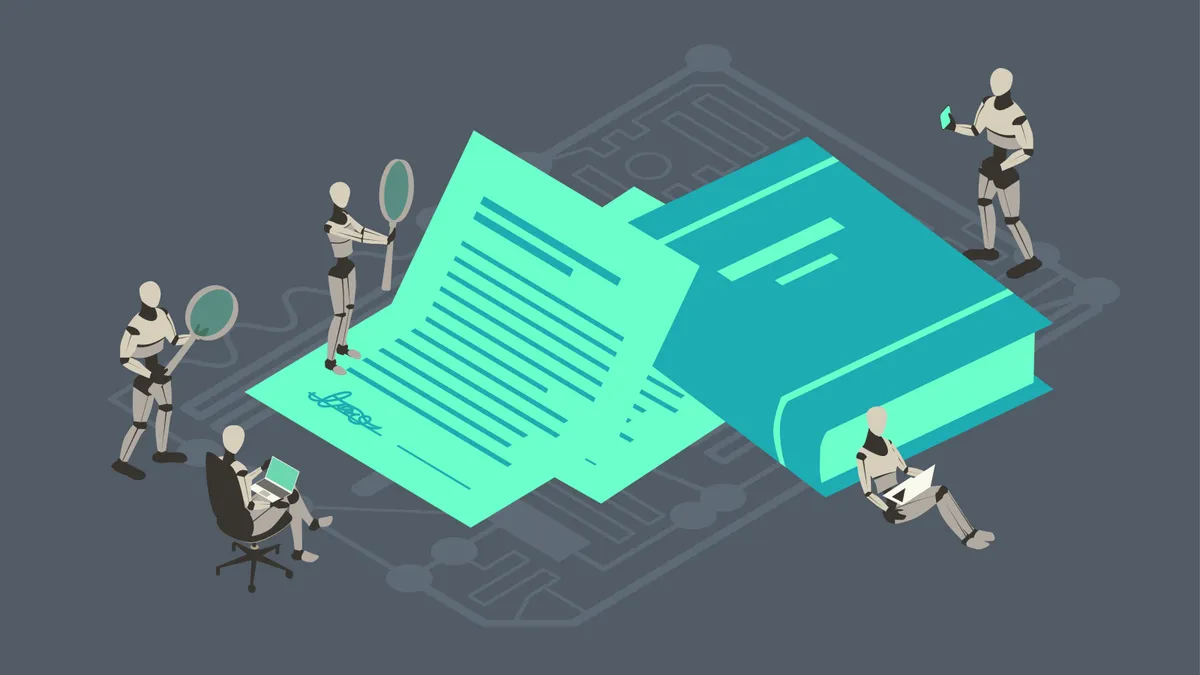Lisa Mundrake is general counsel at ShareFile, a workflow software company. Views are the author’s own.
Emerging technologies like generative AI are driving rapid business development, affecting in-house legal teams across the board. In fact, 39% of in-house lawyers expect AI to be commonplace in their work within 10 years. We are already seeing the use of GenAI in areas such as legal research and M&A activity.

Because of increasingly sensitive and complex business dealings, the demand for in-house counsel has grown in recent years, with the number of in-house lawyers growing by 77% from 2000 to 2022. These lawyers are expected to provide tailored counsel in a time-sensitive manner, seamlessly and efficiently. As in-house lawyers work to address high stakes needs and meet growing expectations, it’s more important than ever for these teams to be equipped with effective resources to ensure both success and efficiency.
Here are several key workflow considerations to help legal teams adapt as the role of technology increases in the legal profession.
Data security
In-house legal teams frequently handle sensitive data for their companies. We have seen many cases of data not being handled properly, with major companies facing lawsuits for failure to protect customer data. In-house counsel must focus on complying with the ever-changing legal landscape and keeping up with technology like GenAI, all while helping their companies protect their customers’ data and their own.
With this in mind, it’s essential that in-house legal teams are well-versed in the latest technologies being used within a company. For example, using GenAI resources or a virtual assistant to input confidential or sensitive information can pose risks as this information could be used to train the publicly accessible model, thus exposing sensitive information. Without being aware, one could expose the company to fines, loss of customers and damaged reputation.
When adopting technologies, organizations must ensure that enhanced security features are in place to maintain continuous compliance and protect sensitive information. These security measures should add layers of protection and integrate seamlessly into workflows without compromising productivity.
Streamlined collaboration
For lawyers, technology enhances day-to-day activities such as communication with colleagues, document sharing, and seamless internal legal processes. Recent survey findings show that 43% of in-house lawyers either use or plan to use GenAI technology, with AI seen as particularly valuable for research, document drafting, email writing, and document analysis.
These daily operations become upleveled during complex transactions like mergers and acquisitions, new product launches, or IPOs, and heighten the demand for in-house counsel to ensure secure and efficient management and collaboration. Activities like these involve multiple stakeholders, large volumes of documents, and regulatory compliance, all of which amplify the risks associated with data breaches, sensitive data being shared, and the use of new technology.
Adopting the correct technologies can provide real opportunity to support and enhance the in-house team’s relationships with their internal business partners. These enhancements allow in-house counsel to focus on higher value, strategic work that drives their organizations forward, especially amid hyper-charged transactions.
Customizable technologies
Industry shifts can have an impact on in-house counsel teams in various ways based on their sector, the scale of the development, and the workflows they have in place. For example, in both real estate and construction sectors, the change of building regulations or sustainability guidelines involves extensive legal review along with possible contract adjustments. Other industry shifts may have an impact on marketing and social media efforts, data privacy and security, compliance requirements, and overall efficiency of legal support.
When it comes to M&A, the role of the in-house counsel has become even more critical in the past few years, with companies leaning on legal teams to successfully complete deals and navigate regulatory knowledge and broader government policy changes. Because of this need, in-house teams have a growing focus on technology and innovation to make the M&A process more efficient. Here, integration and interoperability between processes are crucial to avoid disruptions and maintain operational flow – as even minor challenges can have far-reaching consequences.
New era
While traditionally slow to change, the legal profession can benefit from optimized solutions that enhance in-house counsel experiences and advance the broader profession. The business world is rapidly shifting and evolving due to factors such as technological innovation and macroeconomic trends. Legal teams must ensure they are equipped with the latest technology to maintain efficiency and be ready to evolve and implement new, secure technologies to stay current.
Incorporating these advanced tools into workflows can improve risk management, increase efficiency and enable meaningful strategic work. Ultimately, adopting modern legal tech will usher in a new era of efficient, seamless collaboration and communication, enabling legal teams to succeed in today’s business landscape.

















